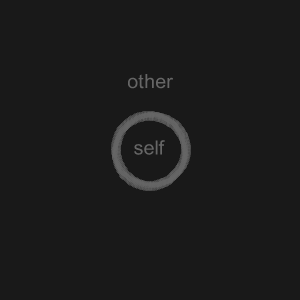
The Universal Religion: Part 1
Visit : tips-stayingcool.blogspot.com
 To bring an understanding of Zen to Europe, Master Deshimaru talked as much in terms of 'God' as he talked about 'Buddha'. Yet, this wasn't a belief in a literal creator being or personal God - he was using the concept as a metaphor for 'the universal' or the fundamental principle of reality, not unlike the way that scientists like Einstein and Stephen Hawking use the concept.
To bring an understanding of Zen to Europe, Master Deshimaru talked as much in terms of 'God' as he talked about 'Buddha'. Yet, this wasn't a belief in a literal creator being or personal God - he was using the concept as a metaphor for 'the universal' or the fundamental principle of reality, not unlike the way that scientists like Einstein and Stephen Hawking use the concept.Zazen is the same thing as God or Buddha. Dogen, the master of transmission, said, "Zazen itself is God." By that he meant that during zazen you are in harmony with the cosmos. In hishiryo consciousness there is no more anything. It is satori consciousness. The self has dropped away and dissolved. It is the consciousness of God. It is God. People have a personal God. We are not separate. There is no duality between God, Buddha, and ourselves.
- Master Deshimaru
According to many sources (for example the scholar Richard Gombrich) the Buddha adapted his teaching to whatever beliefs his audience had, whether they were Tantrics, Vedic fire-worshippers, Naga-worshippers, Yogins, rationalists or skeptics. And in the same way, Deshimaru was adapting his message to the language and concepts of Europe.
During a mondo, I asked Godo Mokuho Guy Mercier what the difference was between practicing Zen and practicing Zen as a Buddhist. Godo Guy responded by saying that we are all Buddhists, that is, all religions are essentially about the same thing, that Buddhism is about the universal, rather than some sectarian dogma. He also argued that the teachings of Jesus really had the same meaning as the teachings of Buddha. He's not the first to say something like this and of course I wonder how far it can be stretched - are the violent, judgemental teachings of the Old Testament the same as Buddhism and what about non-religions?
Universalism
In many ways each religion is quite different - they have mythologies, divine laws and metaphysical schemas that contradict one another. Yet at another level, they seem to intersect at a point that might be called 'mystical experience'. At this point all the major religions seem to be talking about one thing - the transcendence of the individual sense of self. This common ground is so well documented by students of comparative religion that it is almost a cliche. This is known as
Islam
Adorn me with Thy Unity
Clothe me with thy selfhood
And raise me up to thy Oneness,
So that when Thy creatures see me
They will say we have seen Thee
And thou art That
- Abu Yazid
Fools laud and magnify the mosque, While they strive to oppress holy men of
heart. But the former is mere form, the latter spirit and truth. The only true
mosque is that in the heart of saints. The mosque that is built in the hearts of
the saints Is the place of worship for all, for God dwells there.
- Masnavi, Book 2 Story 13
I pray God the Omnipotent to place us in the ranks of His chosen, among the
number of those He directs to the path of safety; in whom He inspires
fervour lest they forget Him; whom He cleanses from all defilement, that
nothing remain in them except Himself; yea, of those whom He indwells
completely, that they may adore none beside Him.
- Al Ghazzali
Mystical Experiences
According authors such as William Stace, all mystical experiences share the same characteristics:
- unity
- time- spacelessness
- sense of reality = knowledge not subjective
- peace/happiness
- sacredness paradox/logic defied
- ineffability
- loss of sense of self
Only the packaging varies - the framework of ideas, culture, language and mythology in which they are conceived and described. As I see it, to the mystic, God or Brahma or Buddha is everywhere - it's only when a strong attachment is made to the philosophical, theological or mythological framework - the means of communication - that this self-transcendence descends into dogmatism, self-righteousness, bigotry, intolerance and potentially violence. The experience of satori and samadhi are the equivalent of union with God, Brahma etc. Only the metaphysics or dogma varies.
Every major religion has it's mystics and it's universalists, but every religion has its dogmatists and fundamentalists too - just as every polical party has a left wing and a right wing. Perhaps more than any other faith, Bahá'à puts a great deal of emphasis of religious universality. Bahai is a branch of Islam which teaches that all religion is an expression or apprec
No comments:
Post a Comment